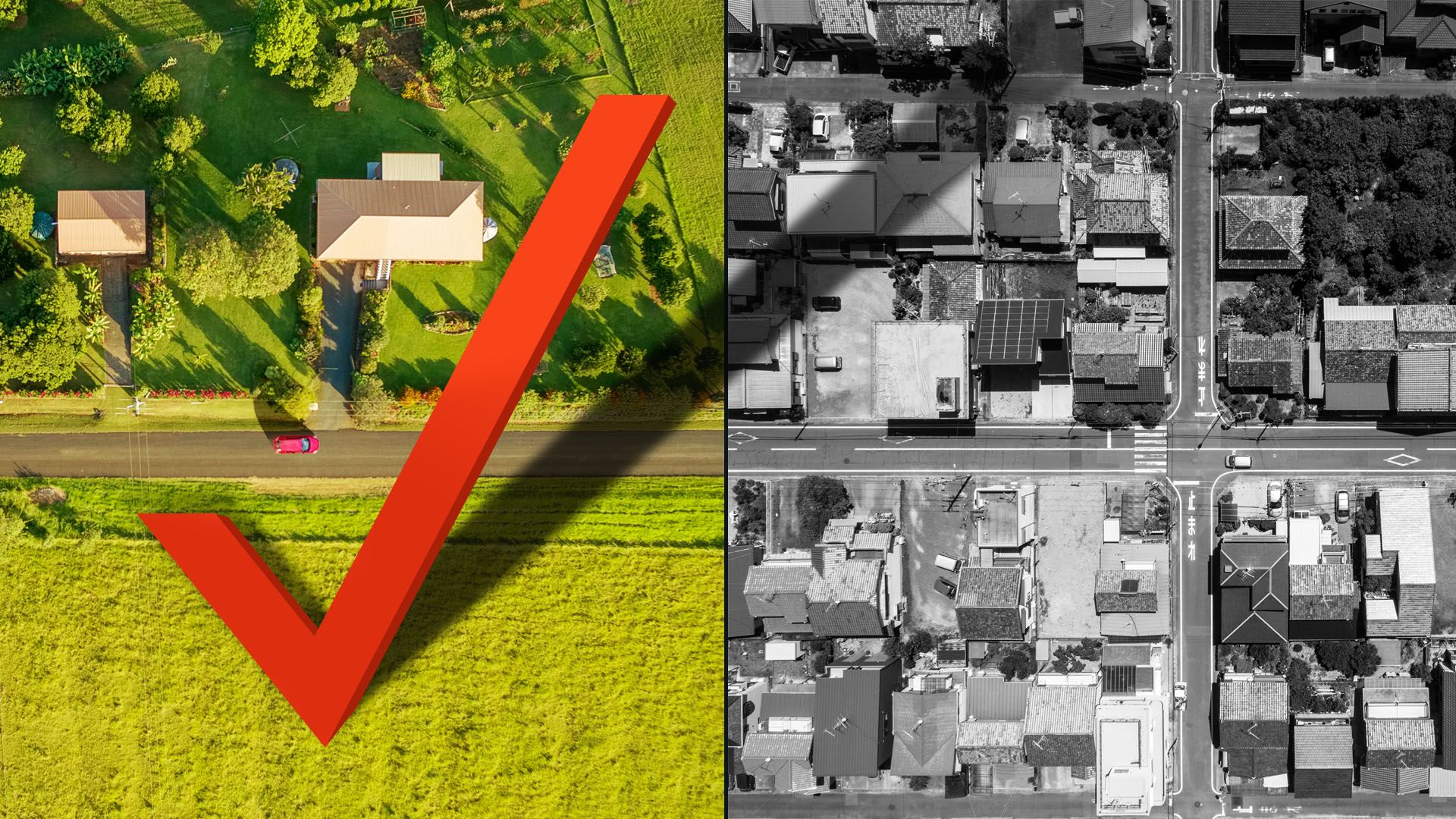Why cities lose high-stakes elections
Add Axios as your preferred source to
see more of our stories on Google.

Illustration: Sarah Grillo/Axios
The rural-urban divide is the defining split in American elections, and that often disadvantages cities, even though they have more voters.
Why it matters: With Democrats clustered in cities and Republicans spread out among exurbs, suburbs are now critical battlegrounds. For example, Democrats swept Virginia's elections Tuesday night thanks in part to suburban voters.
The big picture: "American elections have come to be seen as high-stakes sectional battles pitting the interests and identities of cities and inner suburbs against those of exurbs and the rural periphery," Stanford political science professor Jonathan Rodden writes in his book "Why Cities Lose."
- "In turn, this asymmetry between votes and seats only further fans the flames of urban-rural sectionalism...a trend that is worrisome for the stability and health of American Democracy regardless of one's partisan or idealogical perspective," Rodden writes.
Where it stands: Democrats overwhelmingly take majorities in city centers and inner suburbs, while Republicans' vote share increases as you move to the middle-ring suburbs, becoming more prevalent in distant exurbs and rural areas.
- This dynamic pits cities against the rural peripheries.
Urban-rural polarization has, in many states, allowed Republicans to win more seats than their share of the votes — and that could be the case even without gerrymandering due to demographic patterns and voter behavior, Rodden writes.
- In post-industrial cities in the Northeast and Midwest, groups concentrated in the urban core — minorities, young people, renters and low-income residents — are less likely to vote.
- For example, less than half of registered voters in the Democratic precincts closest to the center of Cleveland voted in 2016. Turnout exceeded 75% in largely Republican exurbs.
What's next: Fast-growing Sunbelt cities, like Orlando and Houston, are more politically diverse.
- Population movements are starting to mix Democrats and Republicans, Rodden said, as young people move to the suburbs and look for affordable housing in smaller cities.
- "If Democrats just try to mobilize their based and urban voters, they'll have to really increase turnout in city centers," Rodden told Axios. "But even working to claw back some voters in rural areas, and mid-sized industrial towns in the Midwest, would make a big difference."
The bottom line: Winning in cities isn't enough for Democrats, and winning in exurbs isn't enough for Republicans.
